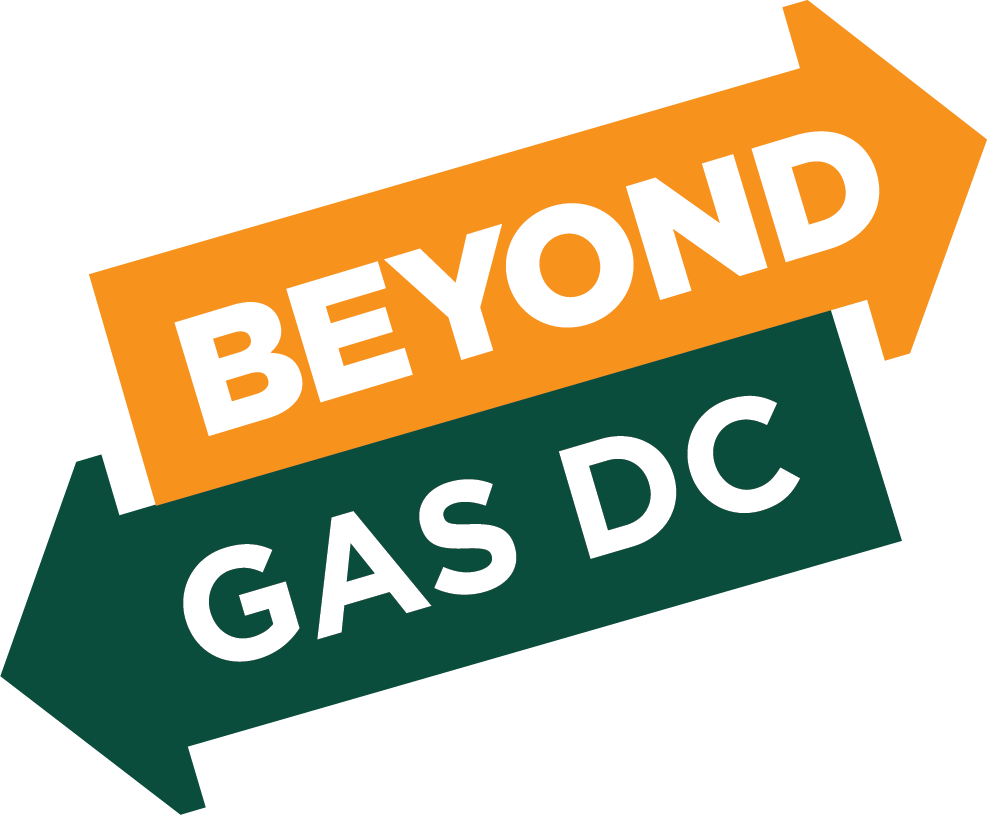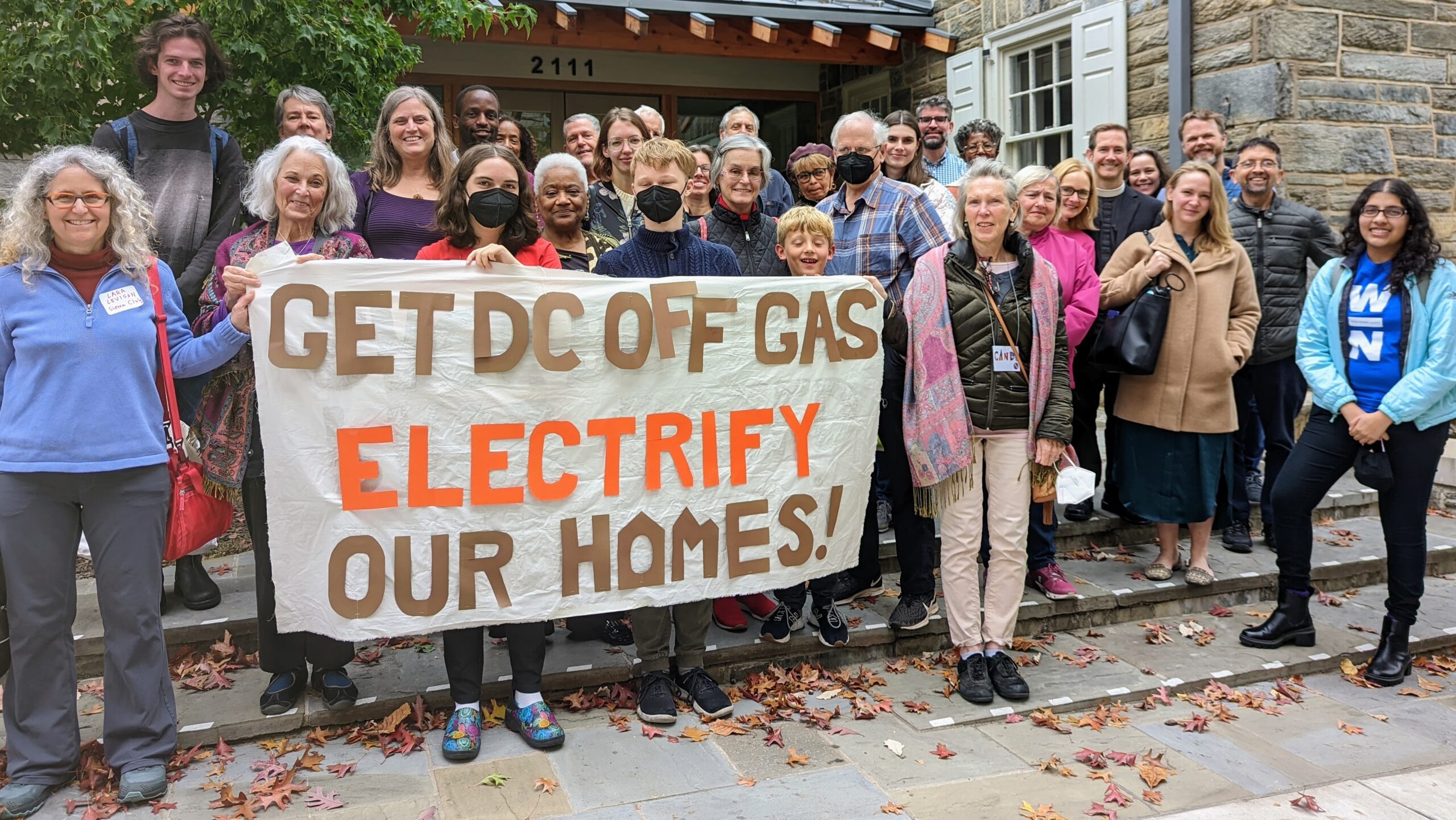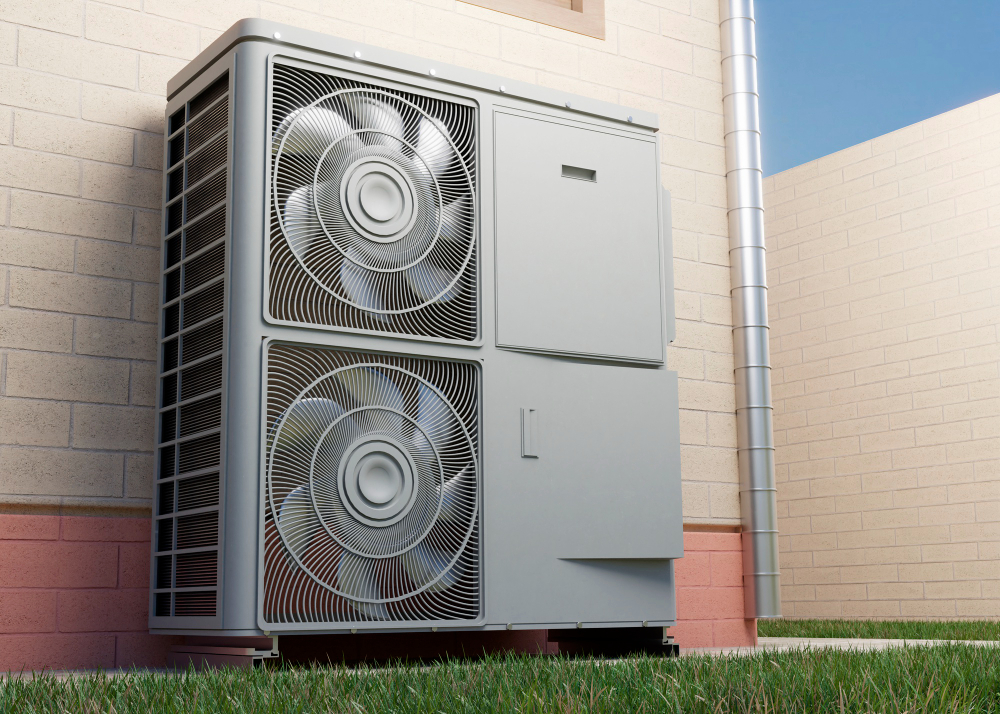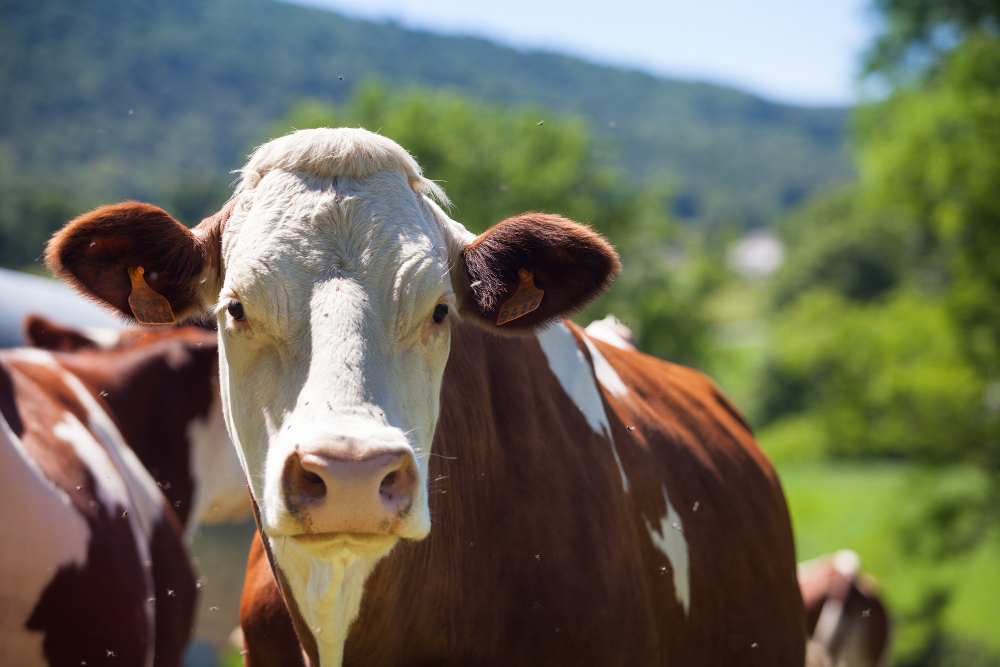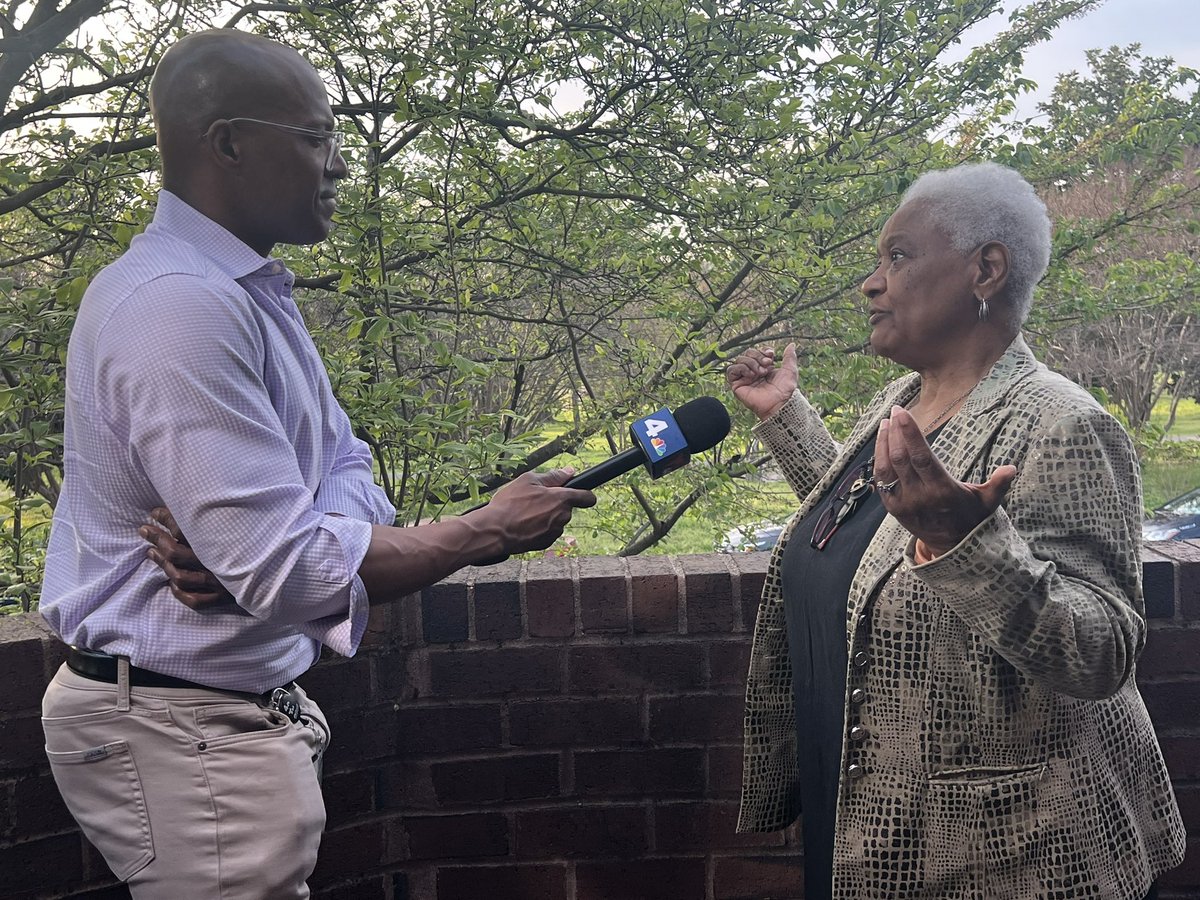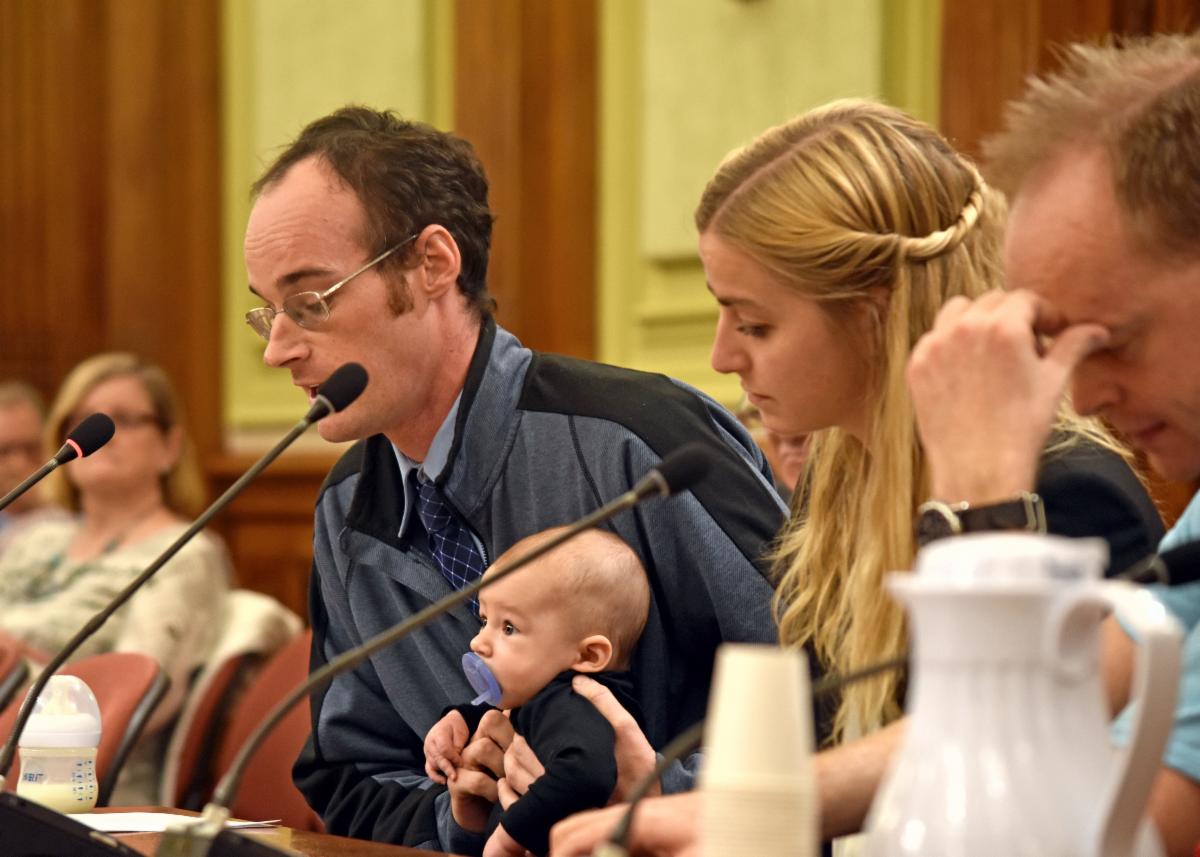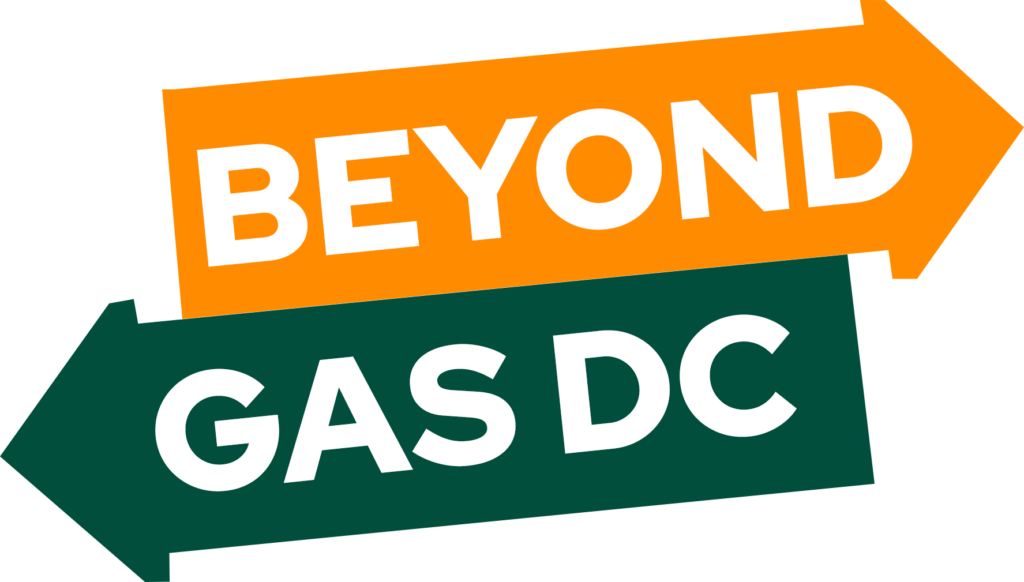September 11, 2023
Dear Councilmember Allen, Councilmember White, and Chairman Mendelson,
Thank you for holding a hearing on May 9 on the Healthy Homes and Residential Electrification Act of 2023 (B25-0119). Nearly 100 witnesses with a broad range of backgrounds testified, and though the witnesses shared a diverse set of perspectives on the legislation, all witnesses testified in support of the bill. Following the successful joint hearing of the Committee on Transportation and Environment, Committee on Housing, and Committee of the Whole, we write to ask that each committee hold a markup this autumn on the Healthy Homes Act. Swift passage of this bill will ensure that more DC’s low- and middle-income households can enjoy the economic, health, and climate benefits of transitioning their homes from fossil fuels to efficient electric systems.
The fiscal year 2024 budget recently signed into law includes a small increase in the monthly Sustainable Energy Trust Fund (SETF) surcharge on utility bills, providing an infusion of new revenue to the underfunded SETF. The 2024 budget also amended the enumerated purposes of the SETF to include residential electrification, meaning that at the start of the 2024 fiscal year on October 1, 2023, funding will be available to implement the Healthy Homes Act. The Council added funding for residential electrification to the SETF for the express purpose of funding the Healthy Homes Act. Swift passage of this important legislation will ensure DC families are able to benefit from the new funding as soon as possible.
The Council Office of Racial Equity (CORE) in June released its Racial Equity Impact Assessment (REIA) on the Healthy Homes Act. The REIA found that the Healthy Homes Act:
- “will likely improve economic outcomes of Black, Indigenous, and other residents of color in the District who earn low incomes and receive electrification retrofits through the Healthy Homes Program”;
- “will likely improve employment and economic outcomes for Black, Indigenous, and other residents of color who participate in the bill’s training initiatives”;
- “will likely result in utility cost savings for participating residents”; and
- “will likely improve health outcomes for Black residents, Indigenous residents, and residents of color in the District.”
Gas appliances pose health risks from emissions of nitrogen oxides, carbon monoxide, particulate matter, and formaldehyde. The REIA found that because of these indoor air pollutants and because Black DC residents are more likely to live in areas with high levels of air pollution and have higher rates of chronic lung diseases like asthma and COPD, the Healthy Homes Act will likely improve the health of Black DC residents.
CORE’s assessment cited analysis finding that electrification retrofits would save households an average of $1,800 a year on utility bills. The average savings of $150 a month would make a real difference for many low- and middle-income DC families. The Healthy Homes Act requires electrification workforce training for both workers and Equity Impact Enterprises (businesses owned by those who have been economically disadvantaged or subject to racial discrimination). The REIA found that because of these training requirements, the Healthy Homes Act “is capitalizing on a key opportunity for the District to make progress toward racial equity.”
The changes to the SETF in the 2024 budget present an opportunity to begin to implement the Healthy Homes Act soon after it becomes law. CORE’s Racial Equity Impact Assessment demonstrates the important role of the Healthy Homes Act in advancing racial equity in the District. We ask that the Committee on Transportation and Environment, the Committee on Housing, and the Committee of the Whole prioritize passage of the Healthy Homes Act when the Council returns in September.
Sincerely,
| Washington Interfaith Network | Mark Rodeffer Sierra Club | Joelle Novey Interfaith Power & Light (DC.MD.NoVA) |
| Elijah Perry GRID Alternatives Mid-Atlantic | Brenda Lee Richardson Anacostia Parks & Community Collaborative | Chris Weiss DC Environmental Network |
| Max Broad DC Voters for Animals | Kush Kharod Sunrise DC | Linda VerNooy Citizens Climate Lobby – DC Chapter |
| Matt Sehrsweeney We Power DC | Parisa Norouzi Empower DC | Bill Mefford The Festival Center |
| SEIU 32BJ | John Macgregor DC Climate Action | Joy Jackson Evergreen Action |
| Selah Goodson Bell Center for Biological Diversity | Nathan Harrington Ward 8 Woods Conservancy | Barbara Zia League of Women Voters of DC |
| Jamal Lewis Rewiring America | Mike Tidwell Chesapeake Climate Action Fund | DC Fiscal Policy Institute |
| Marchant Wentworth Wentworth Green Strategies | Metro DC Democratic Socialists of America | Mark Rasmuson Third Act Washington DC |
| Beau Finley Ward 3 Democrats | Barbara Briggs Friends Meeting of Washington Peace & Social Concerns | Samantha Schmitz Moms Clean Air Force DC Chapter |
| Janet Phoenix DC Asthma Coalition | Vanessa Bertelli Electrify DC | Rachel Feinstein Jewish Community Relations Council of Greater Washington |
| Tim Oberleiton Earthjustice | Vanessa Batters-Thompson DC Appleseed Center for Law and Justice | Joe Dabbs IBEW Local 26 |
| Lydia Lawrence Nature Forward (formerly Audubon Naturalist Society) | Cliff Majersik Institute for Market Transformation | Rafael Woldeab City Blossoms |
| Akosua Ali NAACP DC Branch | Alex Dodds DC for Democracy |
